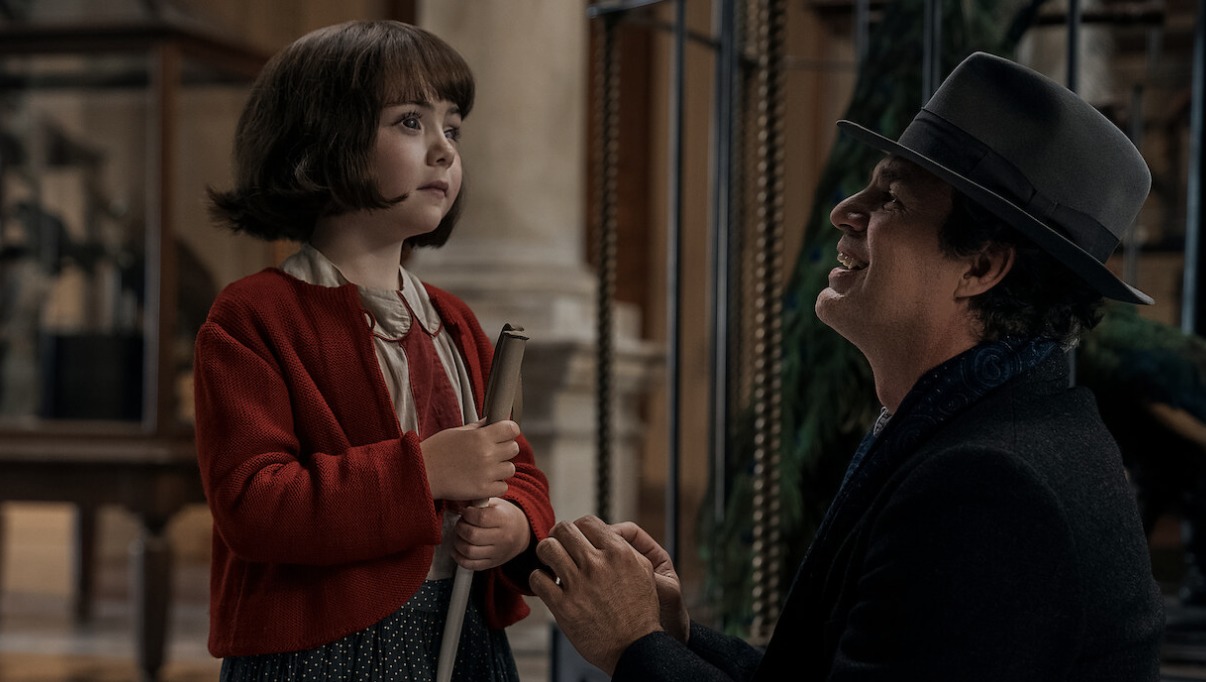The cultural ground is shifting when it comes to religion, atheism, and Christianity in the West. Three recent stories in my social media feed are a reminder how quickly it’s happening.
Richard Dawkins, the world-famous atheist, has been doubling down on his criticism of the transgender movement and progressive ideologies in general. The popular podcast host Joe Rogan, whose show receives over 190 million downloads per month, featured intelligent design expert Stephen Meyer, who advocates for a creator God behind the universe and critiques evolution by natural selection.
And for the first time, less than half of people in the UK identify as Christian. The most recent UK census, taken every ten years, saw those who tick the ‘Christian’ box drop to 46%, with those identifying as ‘no religion’ rising to 37% of the population. This decline is mirrored in the United States, where almost half of millennials and Gen Z now identify as “nones” (religiously unaffiliated).
But few of those who tick the “none” box identify as materialist atheists of the Richard Dawkins variety. In fact, nones are more likely to describe themselves as agnostics who are “spiritual but not religious.” Many of them still pray occasionally, engage in New Age practices, or even dabble in the occult.
That is, modern people aren’t necessarily less religious; they are just religious about different things. When people reject institutional faith, their “God-shaped holes” will be filled by something else.
As some of the most dogmatic atheist leaders today take up the culture war as their new sacred cause, they are also demonstrating a growing interest in hearing from views outside the secular mainstream on science and the nature of reality.
In The Surprising Rebirth of Belief in God, I discuss how New Atheism has become a thing of the past and in its place is a new openness toward supernatural explanations. For instance, many secular intellectuals—such as psychologist Jordan Peterson, historian Tom Holland, and journalist Douglas Murray—are revisiting the God question.
Many of those who used to turn up for Richard Dawkins and his band of New Atheist horsemen found that the answers they gave (pursue science and reason, and banish religion) haven’t provided the light and life they hoped for. Following the lead of these new secular thinkers, many are now being inspired to tap into the ancient wisdom of Scripture, to step into an ancient church or two—or even to cross the line into faith.
Such secularists have identified a “meaning crisis” in our materialistic culture and are increasingly aware that the Christian story has shaped Western culture in ways that are not easy to ignore or reinvent. Even as they profess personal uncertainty about God’s existence, they are beginning to wonder whether any of us can really live without God.
All this has prompted the rise of the Christian-curious agnostic: the modern individual who still wonders whether there may be some truth (or at least usefulness) in the ancient Judeo-Christian story their ancestors once believed.
But how can those of us who believe in this story—of a God who became incarnate, lived, died, and rose again to bring humanity back into relationship with him—engage with a Christian-curious agnostic? Here are three lessons I’ve learned in speaking to the leaders and adherents of this new wave atheist movement:
1. Make them want the story to be true; then show them that it is.
The 17th-century mathematician-philosopher Blaise Pascal wrote, “Make religion attractive. Make good men wish it were true, and then show that it is.” It remains wise advice today.
In the past, Christian thinkers have often wielded logic-based apologetics in battle with New Atheists with varying degrees of success. But it may be too blunt a tool of reason for the sensibilities of some Christian-curious agnostics.
Instead, cultural apologetics is becoming increasingly compelling to them because, as Andrea Palpant-Dilley noted in a previous piece for CT, it “offers a framework for connecting people to those deep parts of ourselves that search for beauty in films, books, and music”—for which “the goal is not to foster a vague transcendence, but to enable an encounter with the living God.”
We are all inspired by art, literature, and beauty—by tales of heroism and sacrifice and the search for a transcendent purpose. That’s why we love Harry Potter, the Marvel films, and The Lord of the Rings (although opinions on Amazon Prime’s spinoff may vary).
Starved of meaning in a story of reality that is frequently reduced to politics, economics, and biology, we need to re-enchant the imaginations of our friends and neighbors. The justice they long for, the identity they are seeking to cultivate, and the art and music that move them deeply have their source in something deeper still. These are all echoes of an alternative and often-forgotten story of God’s image impressed upon humanity.
C. S. Lewis masterfully created the world of Narnia—a magical realm of knights, dragons, talking animals, heroism, valor, and sacrifice—ruled by a lion king called Aslan, who was loving but not tame. He made generations of children and adults wish this story were true, and then he showed us that it is true.
We can do the same with today’s seekers by engaging their imaginations, hopes, dreams, and longings. We must demonstrate why they would want such a world of value, meaning, and transcendent purpose to really exist. Only then will some be ready to hear traditional apologetic arguments for God and the historicity of Scripture.
We should show them that there really are good reasons to believe in an ultimate source of love, beauty, and justice behind this world and that he came to visit us in person.
2. Keep Christianity weird.
I speak to many secular people who seem open(ish) to Christianity, but they don’t want a church that looks the same as the culture. This especially rings true in my conversations with agnostic thought leaders, several of whom seem to possess a wistful longing to return to church.
For instance, there’s Douglas Murray, the conservative-leaning associate editor of The Spectator, who once had a faith of sorts but who now labels himself a “Christian atheist.” He recognizes the values and virtues of the Christian inheritance in the West, yet he finds himself unable to believe.
Murray once noted in a conversation with me that if he were to return to the pews, he would need to encounter something much deeper and more mysterious in church than a warmed-over version of secular humanism.
Likewise, there is a danger when churches try to mimic the values of celebrity culture and the entertainment industry to be culturally relevant. This is something journalist Ben Sixsmith—who describes himself as having an “open, curious, unsettled agnosticism”—has noted.
Sixsmith has been increasingly drawn toward the seriousness of faith and philosophy in the Catholic tradition, but he has chastised churches that water down their message to appear more inclusive or relevant, writing:
I am not religious, so it is not my place to dictate to Christians what they should and should not believe. Still, if someone has a faith worth following, I feel that their beliefs should make me feel uncomfortable for not doing so. If they share 90 percent of my lifestyle and values, then there is nothing especially inspiring about them. Instead of making me want to become more like them, it looks very much as if they want to become more like me.
Similar sentiments have been expressed by popular historian and podcast host Tom Holland as he navigates his way back to Christian faith. His research into the ancient world revealed just how radical first-century Christianity was and how much he owed his modern values and moral instincts to it—a story told in his best-selling history book, Dominion: How the Christian Revolution Remade the World.
However, Holland laments that the church often replaces its miraculous story with a “mush” of platitudinous “thought for the day” broadcasts and politically correct public announcements. He continues:
The churches need to … absolutely embrace [their beliefs] rather than being slightly embarrassed about [them]. … The churches have to lay claim to everything that is … weirdest, most countercultural, most peculiar. Don’t duck all the stuff about angels and things—major on that!
This advice may seem counterintuitive. Many churches have made it their mission to appear as “normal” and unthreatening as possible in their efforts to bring people through the doors.
But many of the Christian-curious agnostics who walk through the doors are looking for something completely different to their normal, everyday life. They want to be transported into another world, a different story.
3. Create a community that counters cancel culture.
Forgive the tongue-twisting title, but whatever the church of the next generation looks like, it must always be a place of grace—where messy people learn to get along with other messed-up people. People are hungry for meaning, but they are also hungry for a community where they can explore that meaning alongside others.
As the West becomes ever more consumeristic and individualistic, the opportunities to be part of a genuine community are constantly diminishing. But we are created to connect with each other eye to eye in the same physical space. Churches are among the few remaining places where people can do that regularly.
Those emerging from the meaning crisis are seeking to make sense of themselves and their part in a bigger story, so churches need to be places of capacious community. We need to be ready to embrace the walking wounded and make space for those at the beginning of their journeys.
The local church needs to be a place of countercultural grace in a polarized, moralistic, and unforgiving society. Grace is the antidote to an unhealthy cancel culture, and people are desperate for it.
Perhaps the greatest witness the church can offer society is that even when we disagree, we can still love each other. “By this everyone will know that you are my disciples, if you love one another,” said Jesus (John 13:35). Not by our shared political views, not even by our sound theology, but by our love.
I’m hopeful that the church still has an open door to sharing the gospel with the pagans of today. Our culture is coming apart at the seams as we try to navigate life without the overarching story that Christianity once provided for so many. Like all idols set up in place of God, the individualistic stories we often tell ourselves will never truly satisfy.
None of us can predict how the dialogue on faith, atheism, and Christianity will continue to shift in the coming years, but I believe God is always in the business of surprising us. Will we be ready to meet the questions and needs of both the New Atheists and the Christian-curious agnostics as they look for a better story?
Justin Brierley is a writer, broadcaster, and speaker in the UK. His second book The Surprising Rebirth of Belief in God: Why New Atheism Grew Old and Secular Thinkers Are Considering Christianity Again is available now.




























![[Video] More – Aghogho » GospelHotspot](https://gospelhotspot.net/wp-content/uploads/2024/04/More-Aghogho.jpeg)
















